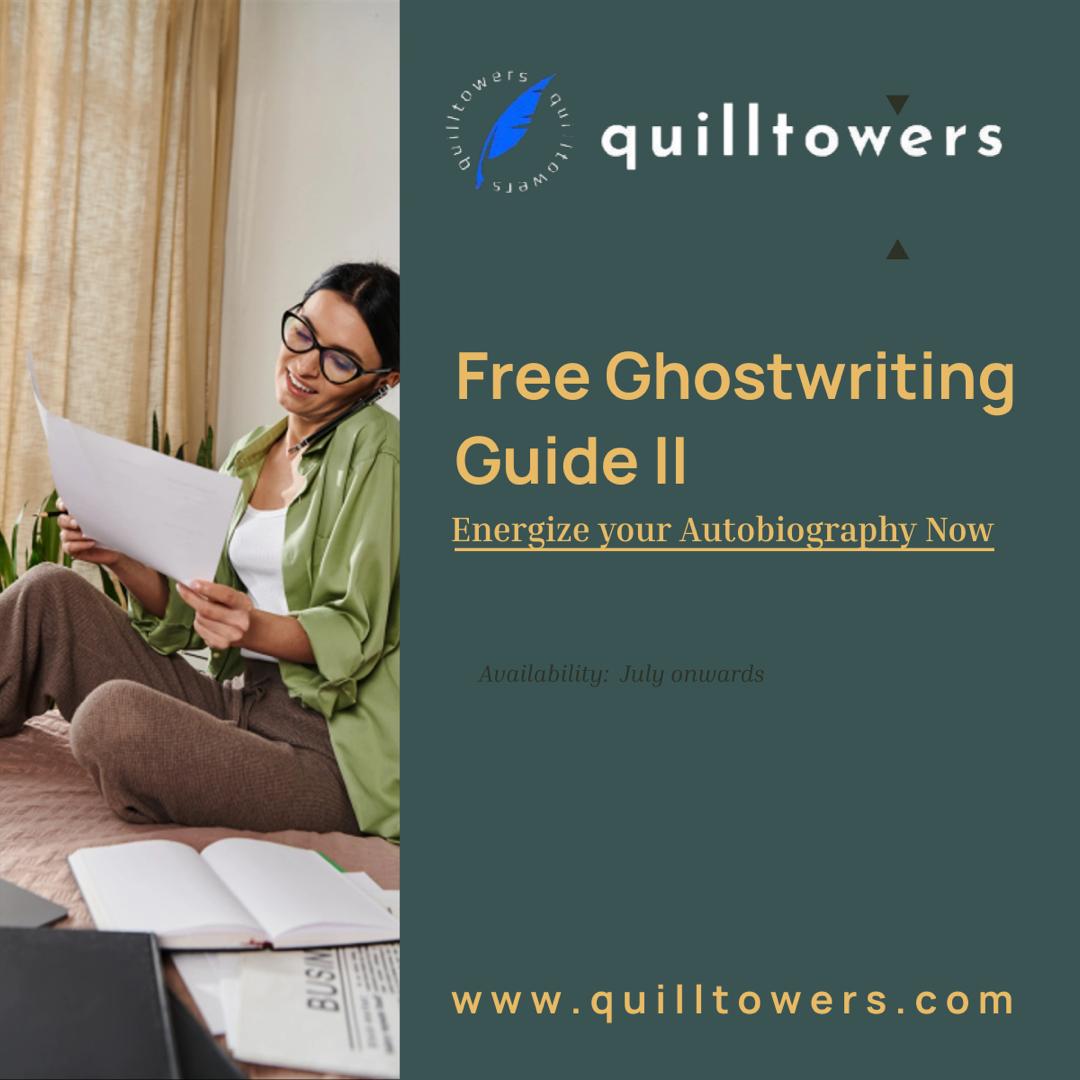Free Ghostwriting Guide: Energize Your Autobiography Now (Part II)
In our previous post, we talked about the importance of autobiographies and why people write them. We also concluded that not everyone have the time or the talent to write a good autobiography. Yes, it is your story but stories should be told by storytellers.
This week, we are giving out tips for those storytellers who can help tell your story. These storytellers are called ghostwriters. Like their name would imply, they are writers that are hired for the purpose of writing articles, books, or any other form of writing. What makes them different is that they write it on behalf of others. Once the book is completed, they take a step back and the client who hired them can take credit for the book. Sometimes, the ghostwriter is acknowledged as the writer while the client takes credit for the story – it all depends on the client and the contract they sign. Ghostwriters can be hired to write editorials, features, academic papers, or even film scripts on behalf of the client.
Good ghostwriters pride themselves on their ability to disappear completely in the book. To do this, they must become like the client – write in the client’s voice, use the client’s mannerisms and tell the story like the client would. A ghostwritten autobiography, when done right, should fool even your spouse and your childhood friends. How do ghostwriters do this?
Free Ghostwriting Steps to Create the Perfect Autobiography

- The Meeting: The meeting is the first time a potential client meets the ghost writer. Ghost writers of a particular niché usually meet their clients in professional seminar, program or outreach. A real estate seminar, for instance, is one of the most likely place to meet a real estate ghostwriter. Some writers are referred by friends and confidants. To ease your search, you can choose to meet us.
- The Personality Test: In order to capture the type of person the client is, ghost writers would send a questionnaire as soon as the deal is sealed. If it is a larger firm, the best writer who complements this personality will be chosen. How is this personality test done? Ssshhh. It is a trade secret.
- The Interviews: The interview is the most significant step in ghost writing. Some writers prefer to do it in person while others do it online, especially if the client is a busy person who cannot adhere to a strict timetable. It also makes it possible to ghost write irrespective of the distance. Interviews tell the writer the story and the client’s style of narration. That narration style is what is used to make the book sound like the client. What we end up with is an autobiography that tells an original story in a creative way.
- Transcripts and Content Breakdowns: Whether in-person or online, the recorded interview is first transcribed into paper. This makes it easier to break down the interview into relevant and irrelevant parts. The relevant parts are broken down into keywords that are used to create a functional outline while the irrelevant parts are washed for any useful parts. When they are clean, they are also kept apart in case they prove useful.
- The Draft: The first drafts are written from the outlines. Each chapter can then be sent to the client for a read through. Unwanted parts are further edited out until the client is satisfied with the tone, story, emotion and the angle of the draft.
These steps are more complicated than they may seem on this page. Ghostwriters are experienced professionals but art takes time and a lot of effort.
How do you know you have a good ghostwritten autobiography in your hands after paying the ghostwriter?
- The Story: A good autobiography will tell your story coherently. The reader wants to know your origin. Where did you come from? How did you get to your present point? Was there something in particular that set you apart? What are your philosophies? The reader bought the book because they want to know you and how you are a success. A good autobiography will tell them.
- The Struggle: For the reader to feel closer to you, they need to learn about your struggles as well. It can be a story of your struggle against financial challenges, educational challenges, cultural challenges or other difficulties that you endured throughout your story. A good ghostwriter knows how to highlight these struggles and how you managed to succeed despite them. Readers often prefer to read the story of the struggle to which they can relate.
- The Success: How are you a success? Most of the readers may have never heard of you before reading your book. Some of them may not be familiar with your field so they may not know the yardstick for success. For instance, Ben Carson is considered a huge name in the neurological field because of the perceived success of Patrick and Benjamin Binder’s operation. Lay men may not know why this is a big deal until they read how complex the operation was in Carson’s 1992 autobiography, Gifted Hands. Why should the audience believe you are a success in sports, business, finance, real estate or any other field?
- The Future: Your autobiography should also contain your plan for the future. If your reason for writing an autobiography is to sell yourself and your brand, this is where you can pitch this idea to them. Since the reader now know the story behind your struggles and your success, it should be easier.
Ghostwriting is an art with an invisible artist. In case you are interested in more details about this subject, do not hesitate to contact us. For you, we are always here.



